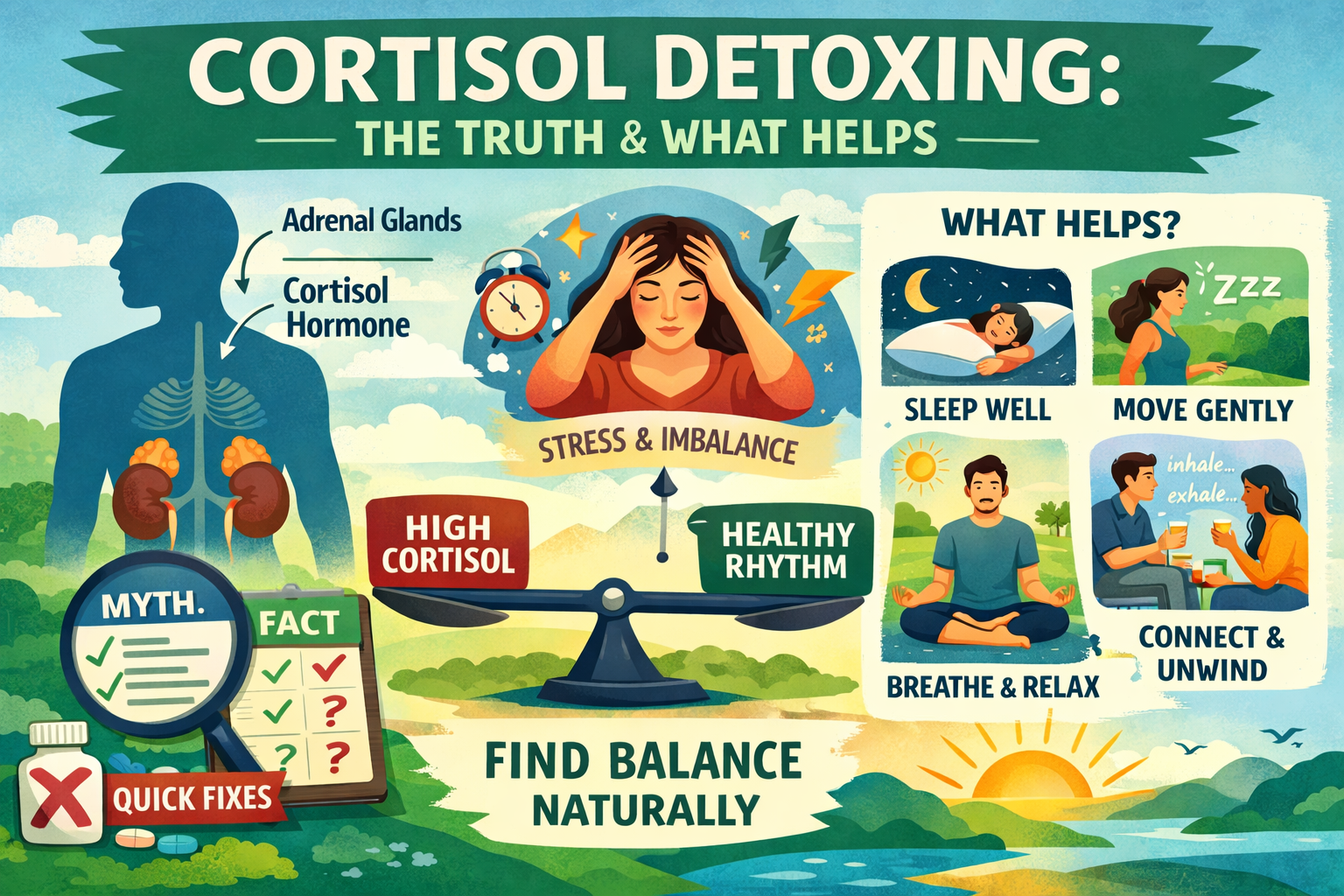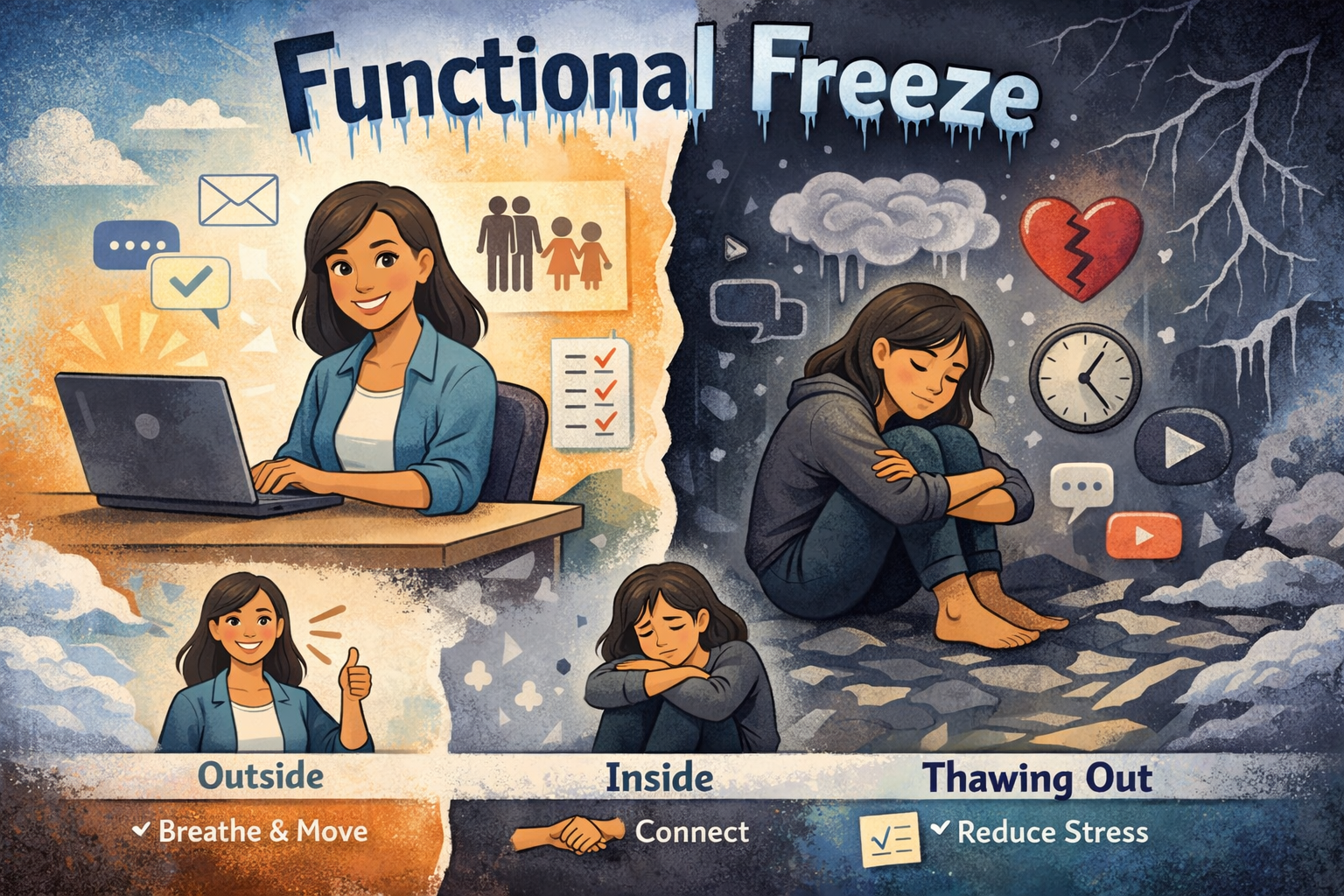Mindfulness Meditation, on the one hand, guides us in navigating through life's constant demands, pressures, and challenges while, on the other side, making us calm, serene, emotionally resilient, and mentally fit. Recent research studies on this subject have documented numerous benefits. However, a paradox arises during this mental exercise. We engage in meditation with effortless effort, as 'being aware' without excessive effort entails allowing thoughts to flow in and out of control. In other words, we continue to make an effort to bring back our attention to the present moment as the mind keeps on drifting away.
This article investigates the real essence of mindfulness meditation alongside its effectiveness and provides directions for beginners who encounter mental distractions like a noisy place.
What Is Mindfulness Meditation?
The fundamental essence of mindfulness exists in present-moment awareness in a non-judgmental way. Our practice of mindful meditation requires us to focus on the present moment by observing thoughts, breath, and body while abstaining from both reactions and mental struggle.
Jon Kabat-Zinn, who helped establish secular mindfulness, describes it as "awareness that develops through focused attention, which is intentional and present and free from judgment."
Your mind does not need to be empty, yet you should observe thoughts as clouds moving in the sky.
The Paradox of "Effortless Effort"
"Just observe your breath" is a common way to describe mindfulness meditation. However, everyone who has tried it knows it is not that simple. When we sit in silence, our minds tend to act contrary to our intentions. The mind keeps on distracting and shifting in various directions.
We find ourselves trapped in a vastness of distractions rather than remaining rooted in the breath. However, returning the focus back regularly and gently without getting restless or frustrated is the core of mindfulness. The true meditation takes place in repeating the exercise.
The paradox of mindfulness is that it necessitates both exertion and a willingness to relinquish control. We must try to recognize when our thoughts have wandered. At the same time, rather than getting annoyed, we need to effortlessly return our focus to the breath. There is no need to "control" the mind, no force, and no self-blame. We are building our awareness muscle each time we manage the wandering mind. According to neurologist Dr. Amishi Jha, mindfulness is about learning to return to the present moment with kindness rather than suppressing our thoughts.
Scientific studies support this strategy. According to Harvard University research, people think about something other than their task at hand for about 47% of their awake hours. However, those who engaged in mindfulness practices reported feeling happier in addition to being more present. The so-called "effortless effort" of restoring attention progressively retrains the brain to become more focused and less reactive. This straightforward yet profound discipline gradually fosters inner clarity and a closer relationship with life as it is, moment by moment.
Therefore, mindfulness is not about having a mind without thoughts. It is about managing the continuous act of distraction. It is the practice, not the struggle. The real paradox of mindfulness is that we find an inner peace, which was always there beneath the chaos, when we practice sitting with our monkey mind.
What Science Says: Benefits of Mindfulness Meditation
Over the past twenty years, mindfulness meditation has shifted from its monastic traditions to mainstream neuroscience, psychology, and medicine. It is now widely used in hospitals, medical institutions, colleges, universities, the corporate sector, and so on. The reason is simple. Widespread research continues to demonstrate the huge positive impact of this practice on our overall well-being.
Key Studies:
- Harvard Study (Sara Lazar, 2011): MRI scans revealed that eight weeks of mindfulness practice led to significant growth of gray matter in brain regions linked to memory enhancement, emotional control, and empathy development.
- University of Wisconsin (Richard Davidson, 2003): Systematic meditation practice leads to increased prefrontal cortex activity in the left hemisphere that correlates with happiness and emotional strength.
- The American Psychological Association found that mindfulness practices consistently produce positive results for stress reduction and improved focus while strengthening the immune system.
- The Journal of the American Medical Association (JAMA, 2014) demonstrated that mindfulness meditation works similarly to antidepressants when treating patients with mild to moderate depression and anxiety.
"The present moment controls the only time frame that we can influence." – Thích Nh?t H?nh
How to Start Practicing Mindfulness Meditation
A peaceful mountain and an elegant cushion serve no purpose in beginning your mindfulness practice. A few minutes of your time combined with a quiet environment and an open mind will help you start.
Simple Beginner Practice:
- Sit comfortably with your back straight.
- Close your eyes and bring attention to your breath.
- Notice the inhale and exhale. You don't need to exert any control over it.
- When your mind wanders (it will), gently bring it back to the breath.
- Continue for 5–10 minutes.
That is it. You don't have to perform it flawlessly. The main goal is to be mindful of the present moments. The true power stems from repetition rather than correct execution.
"If you are too busy to meditate for 20 minutes, you should meditate for an hour." – Zen Proverb
Why Effortless Practice Matters Today
Effortless practice holds significance today because of modern-day necessity. Modern society pressures individuals to exert excessive effort by demanding constant productivity and enforcing multitasking in hyper-competitive environments. Through mindfulness we gain the ability to pause and be present in the moments at hand, which leads to rediscovering life's authentic value.
The practice of mindfulness functions as a revolutionary approach to focus on our present moment in a world full of distractions. The practice directs our awareness away from external chaos to discover the peacefulness that exists within us. The practice enhances our awareness skills through regular gentle breathing exercises, although it does not provide immediate peace.
Final Thought
Mindfulness meditation is not an escape—it's a homecoming. It is a journey back to your senses, your breath, and your true self. The paradox of effortless effort leads us to an old yet modern way of life.
As Kabat-Zinn reminds us:
"You can't stop the waves, but you can learn to surf."
Are you looking for inner peace, deep relaxation or holistic solutions for mental health? Visit http://themindtherapy.in - your space for online counselling/therapy, free mental health tests, meditation, sound therapy etc.
Mind Therapy is India's trusted platform for mental health, mindfulness, and holistic healing. Explore expert-led programs, guided meditation, sound therapy and counselling at http://themindtherapy.in














